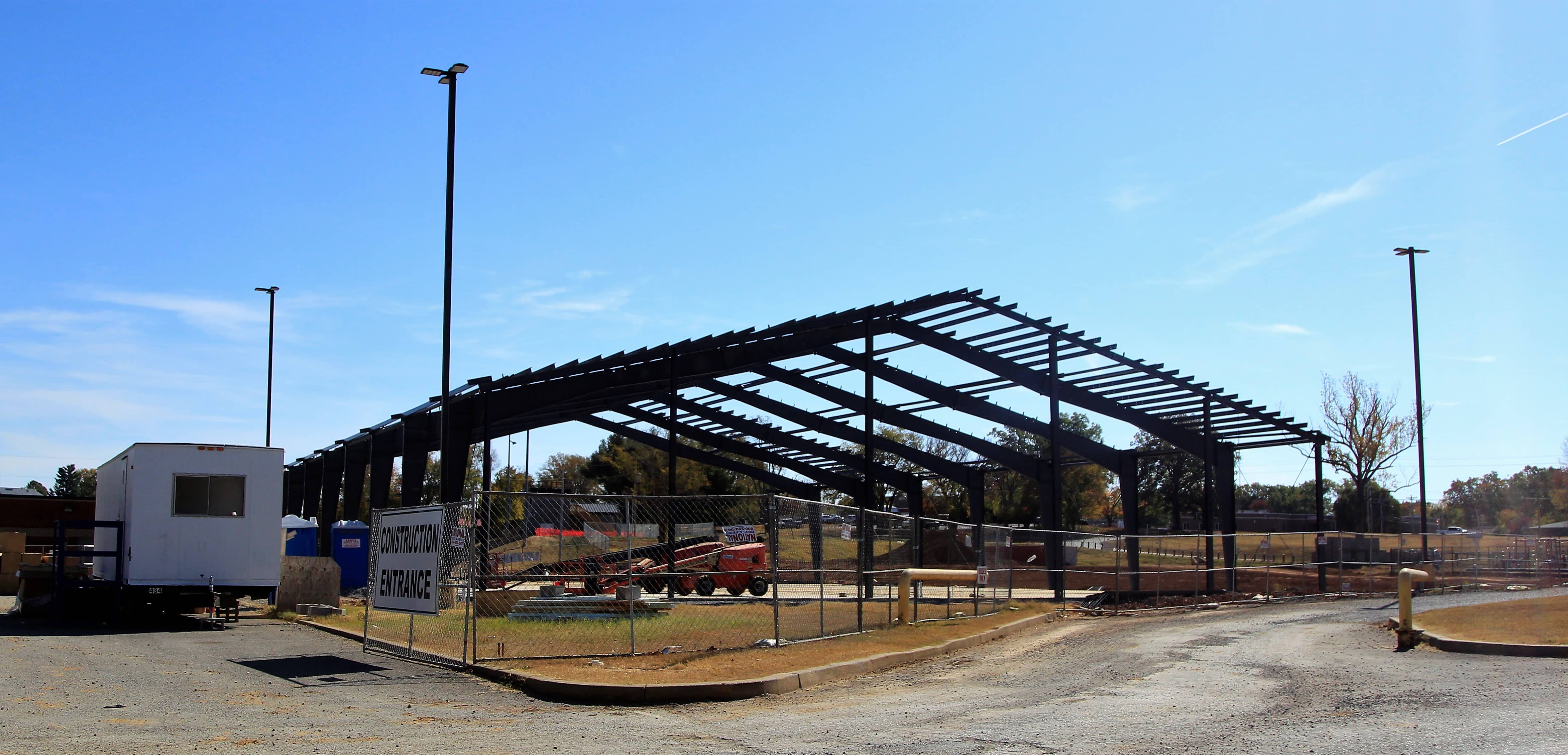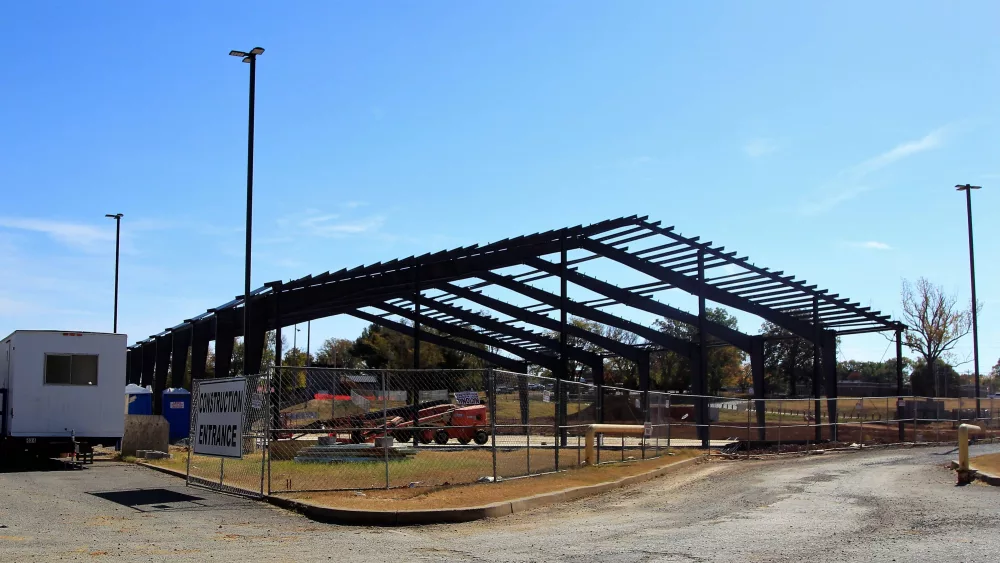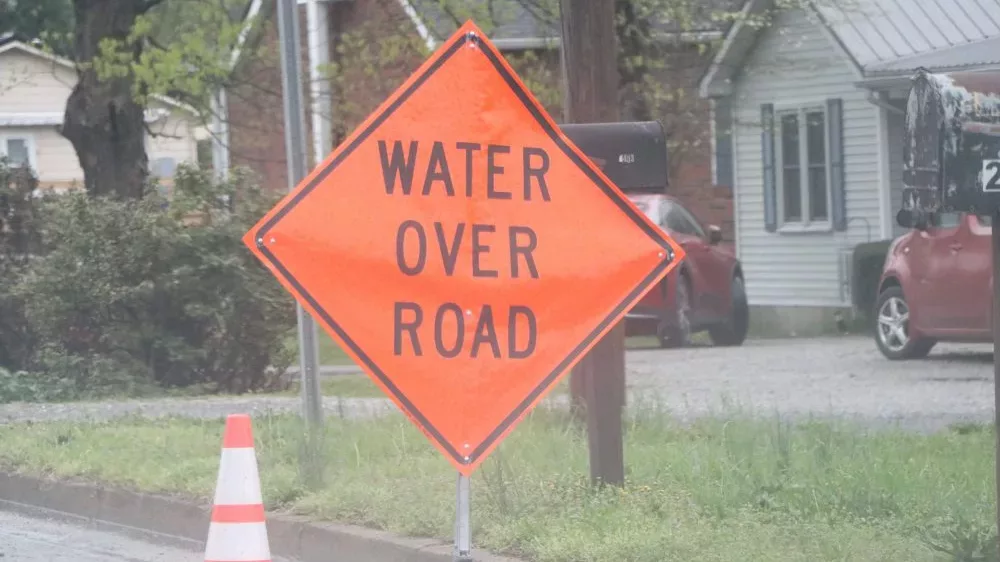
A recallable “nickel tax” could be on the way for Trigg County. One that some officials believe would benefit the school system in unique ways.
During Thursday’s Trigg County Board of Education meeting, the first reading of a “nickel tax” passed unanimously and with little fuss — in hopes, among many things, of increasing the district’s bonding potential for capital projects.
More importantly, there seems to be a unified focus to renovate a dilapidated high school that’s seen little love since its 1962 construction and now is officially the oldest building on campus.
Board member Clara Beth Hyde called for the vote, herself noting a levy wasn’t ideal.
Superintendent Bill Thorpe noted that any increase of a school tax wouldn’t be paying for any past or current projects, but would only be propelling and preparing for the future.
Today’s current construction, which is aplenty, is already budgeted and accounted for — either through grants, current bonding potential, or school capital.
Furthermore, officials feel like this as opportune a time as any to implement such an effort. With increasing property value assessments, Trigg’s BoE can issue the nickel at four cents, rather than the standard six cents, and in return receive the same cash valuation.
In even clearer terms, a home assessed at $100,000 would only see its tax increased by $40 over the year, rather than nearly $60.
That’s $3.33 per month.
School Attorney Jack Lackey has noted in previous school board meetings, especially in Hopkinsville, that a nickel tax has been adopted by more than 100 of Kentucky’s 120 counties, and that under state law, the tax can only be used for capital construction or repairs and renovation of existing facilities.
On Thursday, he broke down how a 2023 nickel tax would look for local payers.
The Kentucky Department of Education already provides a match for districts that voluntarily add the nickel to their scales. Those that don’t, however, pass up on nearly $330,000 in state annuities.
Furthermore, school officials are deeply concerned that if a major renovation doesn’t occur at the high school soon, time could run out on options. Major renovations typically come along once in a 20-year budget, and a $10 million grant under the Beshear administration — one that will repair the vocational building — has only further illuminated concerns for its next-door neighbor.
With no nickel, officials believe a high school renovation would have to wait until 2039, a middle school renovation until 2059, and a primary/intermediate refresh in 2079 — essentially backpedaling the district’s most important buildings 60 years.
In a flier soon to be released to the public, officials noted that nickel taxes could be supported by the community, regardless of whether they have children in the school system because the campus itself remains a “key factor in economic growth.” Updated facilities offer “enticing and appealing placements for future employee students,” and increase the chances of landing pivotal businesses and industry.
This, in turn, “builds a stronger workforce” for Trigg County. And a higher quality of life.
It’s fair to note that a pair of nickel taxes, in Christian and Crittenden counties, recently failed magnificently under pressurized and hotly-debated special elections — in which citizens roared back at districts.
Furthermore, Thorpe and the board will likely have to answer questions regarding the district’s current spending and savings plan, the scheme of renovations expected, and perhaps even answer to prior decisions made before their tenures.
One thing is certain: the high school needs help.
A public hearing has been set for noon, December 2 at the board room on Main Street, with a special session and second reading scheduled to follow.






